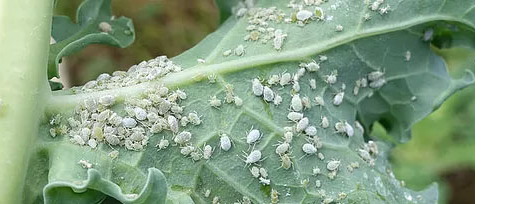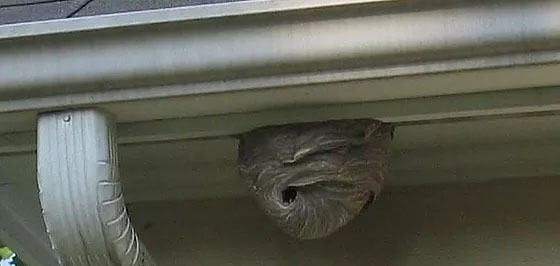
Need to take more drastic pest management measures? Do so naturally without turning to harsh chemicals.
Try these alternatives to pesticides that are effective in deterring pests without negatively affecting our health or the ecosystem’s health.
Alternative insecticides for the yard and garden:
-
Diatomaceous earth
-
Available at garden centers
-
Affects crawling insects, such as snails and slugs
-
Dust ground around plants with powdered diatomaceous earth (can also sprinkle directly on affected leaves)
-
Needs to be reapplied after rain (or heavy watering)
-
-
Neem oil
-
Available at many garden centers
-
Disrupts the life cycle of insects in any stage (egg, larvae, or adult)
-
Biodegradable, nontoxic to pets, birds, fish, and other wildlife
-
Won’t pollute ground water or runoff
-
Won’t harm bees, butterflies, and lady bugs
-
Effective against many common insect pests
-
Effective against powdery mildew and other fungal infections
-
To prepare for use, mix 2 teaspoons neem oil with 1 quart of water (option to mix 1 teaspoon mild liquid soap)
-
To use, spray on affected plant foliage
-
Spray early in the morning or in the evening. Avoid spraying during the heat of the day when the combination of sun and oil can burn foliage.
-
-
Peppermint, thyme, and rosemary oil repellent
-
Mix equal parts (about 10 drops) peppermint, thyme, and rosemary essential oil in a spray bottle filled with water
-
Spray around garden
-
Repels (doesn’t kill) flies, fleas, mosquitoes, cabbage looper caterpillars, aphids, squash bugs, white flies, ants, beetles, spiders, chiggers, ticks, and roaches.
-
-
Homemade Insecticidal soaps
-
Spray directly on affected foliage (avoiding heat of the day)
-
Affects many common garden pests
-
Oil spray
-
Mix 1 cup vegetable oil with 1 tablespoon liquid soap (such as castile soap)
-
To apply, mix 2 teaspoons of oil and soap mix with 1 quart of water. Shake, and spray directly on affected plants
-
Avoid spraying during heat of the day.
-
Works on aphids, mites, thrips, etc.
-
-
Soap spray
-
Mix 1 ½ teaspoons mild liquid soap (castile) with 1 quart of water.
-
Spray directly on infected plants.
-
Apply early in morning or in evening, not during the heat of the day.
-
Works on mites, aphids, whiteflies, beetles, etc.
-
-
-
For wasps or hornets nests:
-
Peppermint or Tea Tree Oil Castile Soap Spray
-
Add one cup of tea tree oil or peppermint liquid castile soap to a hose end sprayer.
-
Attach to hose and spray directly at nest until it disintegrates or falls down.
-
The soap suffocates the wasps or hornets and the peppermint or tea tree scent prevents them from coming back and rebuilding nests.
-
-

Alternative pesticides for the home:
-
Peppermint oil
-
Spider and ant repellant
-
Mix about 5-7 drops of peppermint oil and a few drops of dish soap in a spray bottle filled with warm water, shake well
-
Spray along windows, doors, and other places you might find spiders
-
-
Mosquito repellant
-
Place a few drops of peppermint oil in a shallow dish of water
-
Place in the room where you want to deter mosquitoes
-
-
Rodent repellant
-
dip cotton balls or rags in peppermint oil and place around home (inside or outside) wherever the pest problem occurs
-
Repels mice, rats, squirrels, and rabbits
-
-
Alternative pesticides for weeds:
Vinegar and hot water are effective at killing most weeds, but care must be taken because they could also kill surrounding plants you want to keep. These treatments are best used for treating weeds in sidewalk cracks, patios, or other hard surfaces.
-
Vinegar
-
Add a couple of drops of liquid soap to white vinegar to help it adhere to the plant
-
Spray on a dry, sunny day
-
Optional: add salt to prevent weeds from coming back. Salt will also inhibit other plants from growing, so only add salt where you know you never want anything to grow (ex: walkway, crack in sidewalk, etc.).
-
-
Boiling water
-
Pour boiling water on weeds you wish to eliminate
-